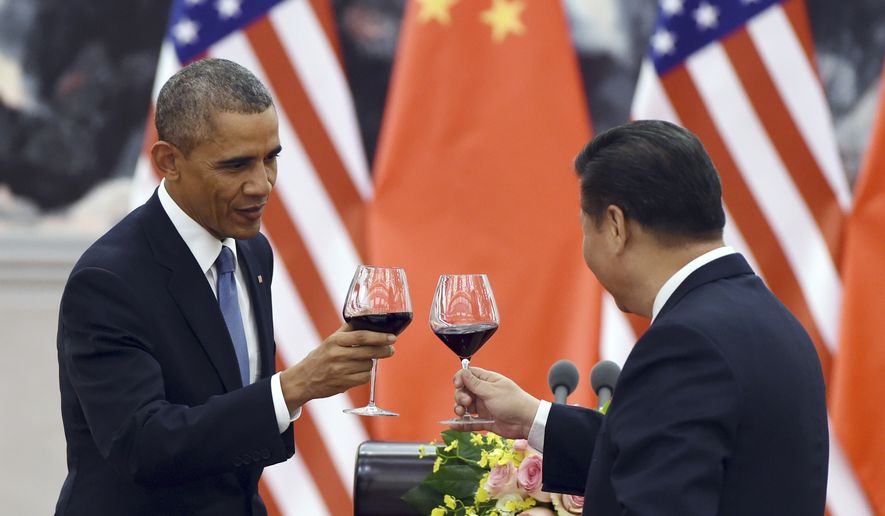The secret Pacific trade deal President Obama is negotiating contains a “living agreement” provision that could allow it to change and grow, including eventually roping China into the group of nations involved, according to lawmakers who are demanding more transparency before they give the White House fast-track powers.
GOP leaders insist that Congress would get a say in any changes, saying that’s written into the fast-track powers — but the issue is complicating their bid to round up Republican votes ahead of a House showdown later this month.
The opponents are concerned about a governing commission that’s to oversee the Pacific deal, questioning just how much power the body would have. They say it’s particularly troubling because the details of the Pacific deal are still secret, and so it’s impossible to know what exactly the commission could do.
“To approve fast-track would be to authorize the president to finalize this new commission before we even know its authority and reach,” Rep. Duncan Hunter wrote in a letter to Majority Leader Kevin McCarthy asking him to delay any vote until the White House explains more.
Mr. Obama is seeking fast-track powers from Congress so he can complete negotiations on the Trans Pacific Partnership (TPP), which would tear down trade barriers among the U.S. and 11 other Pacific Rim nations. Fast-track powers, known as Trade Promotion Authority or TPA, would also allow him to conclude other deals.
But it’s the TPP that’s drawing the most attention, and particularly the commission that would oversee the agreement, and can change its parameters.
Rep. Mo Brooks, an Alabama Republican, is circulating a letter to colleagues demanding answers from House Ways and Means Committee Chairman Paul Ryan, the point man for TPA, about what the commission would control and what threshold vote it would require to make decisions among the 12 nations.
“Given the threats to congressional power that have accrued in recent years and the loss of U.S. sovereignty until these materials have been made public and these questions have been answered in full,” Mr. Brooks says in the draft.
The Ways and Means Committee said the fears of a runaway agreement or a rogue commission were “far-fetched,” and said the fast-track bill ensures Congress has a say on any agreement before it comes into force.
In a blog post, the committee said trade deals regularly establish commissions to oversee operations, and they don’t end up usurping Congress’s power to write the laws for the U.S.
“The committee can propose whatever it likes, but it has no power over U.S. law whatsoever,” the Ways and Means staffers said in the post.
They also said it would take a unanimous vote of the commission, which would give the U.S. veto power, and said Congress must vote to approve any changes to trade agreements before they can take effect. That also goes for adding in new nation to the deals.
“Congress would have the final say,” the committee said.
With most House Democrats opposed to the trade deal, Republican leaders will need to maximize support within their own ranks, and conservatives’ objections to potential loss of sovereignty or to giving Mr. Obama more leeway in negotiations could complicate the search for GOP votes.
Mr. Obama, who is pushing for trade powers, has hurt his own cause by taking executive action in opposition to congressional Republicans on so many other areas, poisoning them against any new grants of power.
“The American people are understandably concerned about the loss of sovereignty under this administration,” Mr. Hunter wrote in his letter. “It would be irresponsible to give the administration a green light to form a new, binding international governing authority before we are fully briefed on exactly how he plans to use it.”
• Stephen Dinan can be reached at sdinan@washingtontimes.com.




Please read our comment policy before commenting.